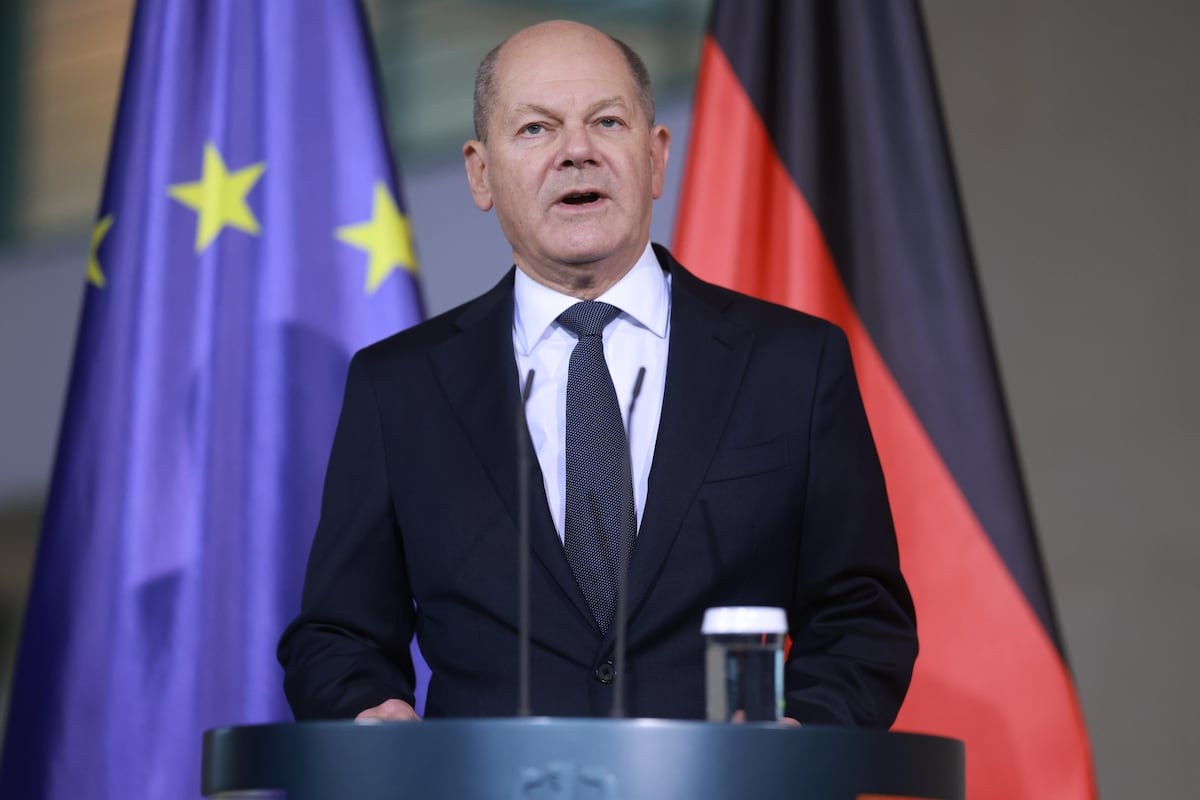Olaf Scholz will undergo a vote of confidence next week with the aim of losing it. It may sound incongruous. But it is the only way that the German chancellor has to advance the legislative elections, his purpose since on November 6 he broke the tripartite coalition that had governed Germany since 2021. And, despite adverse polls that predict a victory for his Christian Democrat rival, Friedrich Merz, the social democrat Scholz seems ready to fight for every vote.
“In a democracy it is the voters who decide the course of future politics,” Scholz said this Wednesday after formalizing with a letter to the president of the Bundestag, Bärbel Bas, the request so that, on December 16, parliamentarians decide whether or not they want him to remain in power. Without a majority since he dismissed the liberals from the government coalition that also includes the Greens, he will most likely lose the vote.
This will activate the calendar so that early elections can be held on February 23. After listing the themes of the campaign, from the preservation of jobs in the crisis industry to the war in Ukraine, in which he champions “prudence”, the chancellor urged the Christian Democratic opposition to adopt social measures before of parliamentary dissolution. And he stated: “All this will be about when citizens put their cross on the ballot.”
Scholz is the fifth chancellor to submit to a vote of confidence since the founding of the Federal Republic in 1949. Like other predecessors, he will use it not with the aim of winning – he knows that the numbers are not enough – but for tactical purposes.
The first chancellor to resort to the motion of confidence was the social democrat Willy Brandt in September 1972. Brandt, who governed with the liberals, sought to bring forward the elections to reinforce his majority in the midst of a debate over his policy of rapprochement with the countries of the Soviet bloc. . He lost the motion, the elections were brought forward and he won them clearly.
For fellow social democrat Helmut Schmidt, 10 years later, the vote of confidence should serve to close ranks around a policy discussed within his own ranks, such as the rearmament of NATO in the face of the Soviet challenge. Schmidt won the motion, but a few months later his coalition partners, the Liberals, left the Government, joined their votes with the Christian Democrat opposition and defeated the chancellor in a motion of no confidence. The replacement was the Christian Democrat Helmut Kohl, who came to the Chancellery without going through elections. To legitimize himself, he submitted to a vote of confidence with the aim of losing it and calling early elections. He won them and thus began the Kohl era, which would last until 1998.
Kohl’s successor, the Social Democrat Gerhard Schröder, raised two motions of confidence. The first, in the fall of 2001, after the 9/11 attacks against the United States. Given the resistance in part of the coalition of social democrats and greens to involving Germany in the war in Afghanistan, Schröder considered Parliament’s approval necessary. It was, as he wrote in his memoirs, “to force the dissidents in the coalition” to accept his position. He got it.
Four years later, in the midst of the economic crisis and with a rebellion in the Social Democratic Party against Schröder’s social reforms, he decided, like Scholz now, to bring forward the elections. But, like Scholz now—and like Kohl in 1982—he encountered a Constitution that, as an antidote to the parliamentary instability of the Weimar Republic and the years before Nazism, limits the possibilities of dissolving Parliament. The available option was, once again, to call a motion of confidence, and lose it. The early elections of 2005 led to the defeat of Schröder and the victory of Christian Democrat Angela Merkel, who would govern for 16 years.
Scholz’s motion will be debated and voted on Monday in the Bundestag. Then, according to the Constitution, the chancellor must ask the President of the Republic, Frank-Walter Steinmeier, to dissolve Parliament within 21 days. The campaign can begin.







